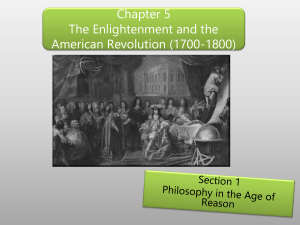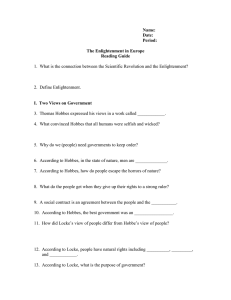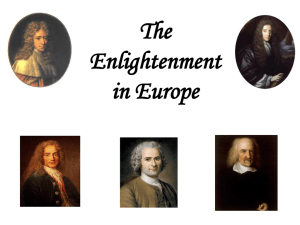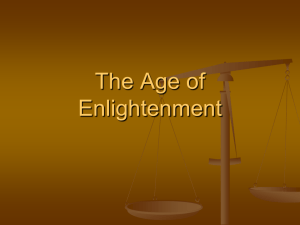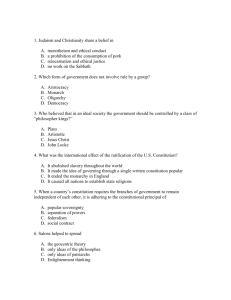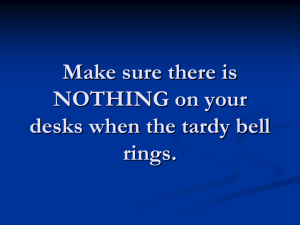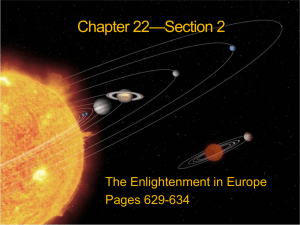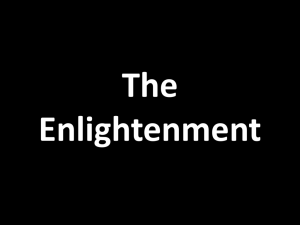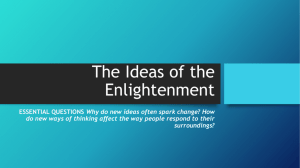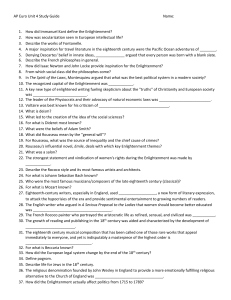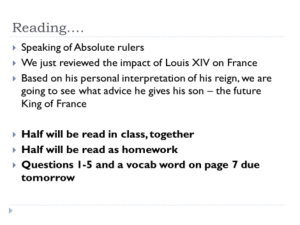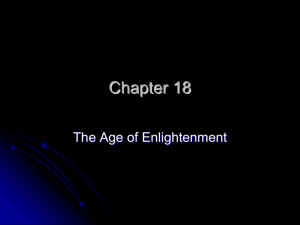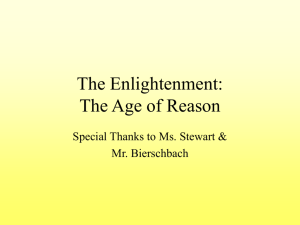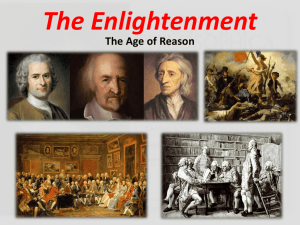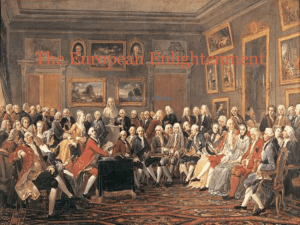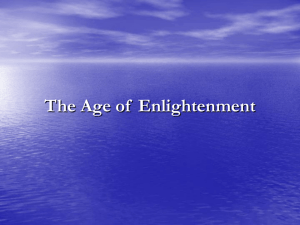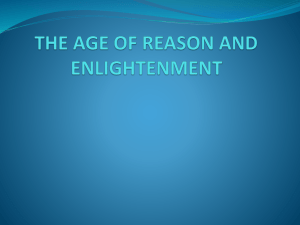Thomas Hobbes vs. John Locke Hobbes argued that people were
advertisement
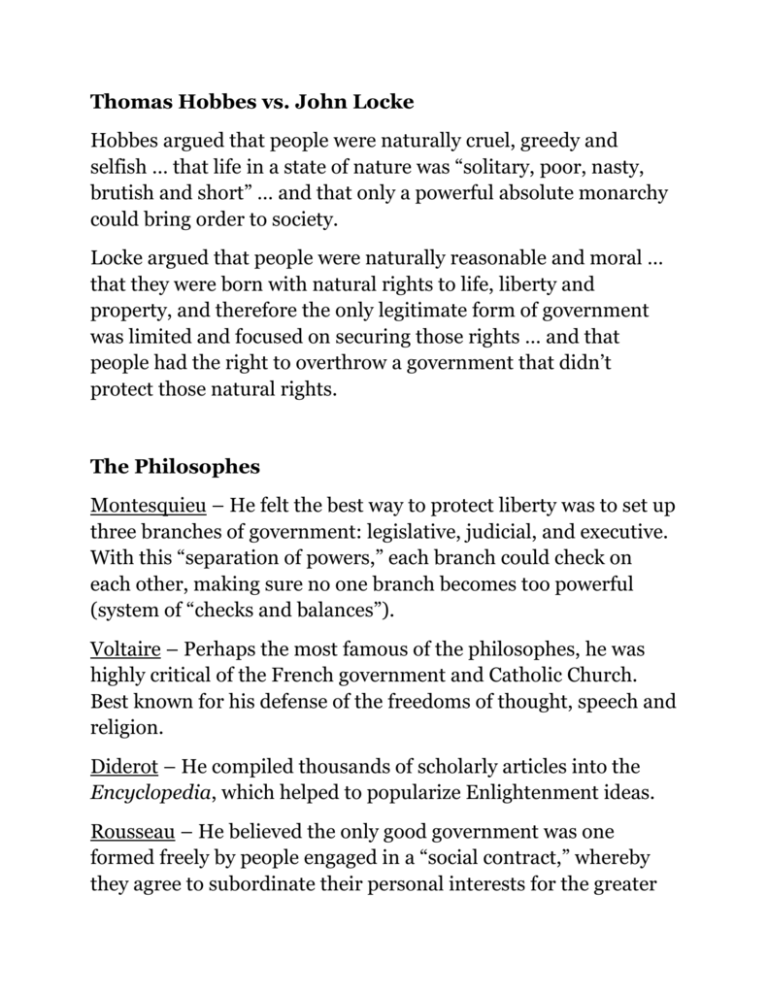
Thomas Hobbes vs. John Locke Hobbes argued that people were naturally cruel, greedy and selfish … that life in a state of nature was “solitary, poor, nasty, brutish and short” … and that only a powerful absolute monarchy could bring order to society. Locke argued that people were naturally reasonable and moral … that they were born with natural rights to life, liberty and property, and therefore the only legitimate form of government was limited and focused on securing those rights … and that people had the right to overthrow a government that didn’t protect those natural rights. The Philosophes Montesquieu – He felt the best way to protect liberty was to set up three branches of government: legislative, judicial, and executive. With this “separation of powers,” each branch could check on each other, making sure no one branch becomes too powerful (system of “checks and balances”). Voltaire – Perhaps the most famous of the philosophes, he was highly critical of the French government and Catholic Church. Best known for his defense of the freedoms of thought, speech and religion. Diderot – He compiled thousands of scholarly articles into the Encyclopedia, which helped to popularize Enlightenment ideas. Rousseau – He believed the only good government was one formed freely by people engaged in a “social contract,” whereby they agree to subordinate their personal interests for the greater good of the community. Huge inspiration for the French Revolution. Wollstonecraft – She spoke out for women’s rights, which were not championed by most Enlightenment philosophers. Wrote A Vindication for the Rights of Woman, in which she argued for equal education for boys and girls. New Economic Thinking • Enlightenment thinkers who took a rational approach to understanding economics were called physiocrats. • Physiocrats believed in free trade and low tariffs … in laissezfaire economics, which is minimal government interference with commerce (as opposed to mercantilism, which argued for government control of business to maintain a favorable balance of trade) • Adam Smith’s The Wealth of Nations (1776) puts forth the classic argument for free-market economics.
